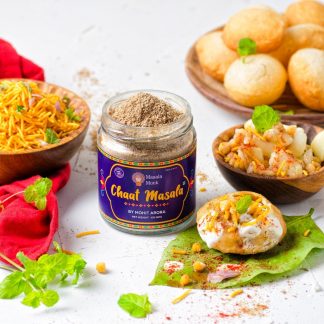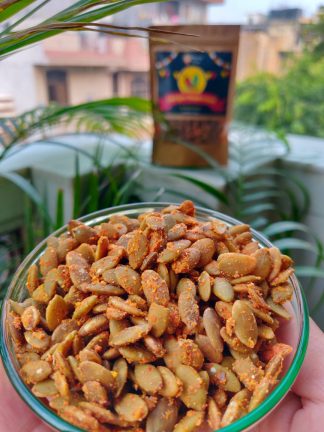
Your gut, often termed your “second brain,” plays a pivotal role in your overall well-being. From aiding digestion to influencing your mood, a healthy gut is the cornerstone of a healthy body and mind. Discover the top foods that can supercharge your gut health and transform your well-being.
Why is Gut Health Crucial?
The gut is home to trillions of bacteria, both good and bad. A balanced gut microbiome ensures optimal digestion, nutrient absorption, and immune function. Moreover, recent studies have linked gut health to mental well-being, emphasizing its role in mood regulation and even cognitive function. Now, let’s explore the foods that can nurture this vital system.
1. Fermented Wonders: Kefir & Sauerkraut
Fermented foods like kefir (a yogurt-like beverage) and sauerkraut (fermented cabbage) are teeming with probiotics. These beneficial bacteria aid digestion, combat harmful bacteria, and even produce essential vitamins. Quick Tip: Try adding sauerkraut to your salads or sandwiches for a tangy twist. Drink kefir straight or blend it into smoothies.
2. Yogurt: The Probiotic Powerhouse
Natural, unsweetened yogurt is a gut’s best friend. Rich in live cultures, it helps maintain a healthy balance of gut bacteria. Quick Tip: Enjoy yogurt with fresh berries and a drizzle of honey for a gut-friendly breakfast.
3. Whole Grains: The Gut’s Fuel
Whole grains like oats and quinoa are fiber-rich foods that act as fuel for beneficial gut bacteria, promoting their growth and activity. Quick Tip: Whip up a bowl of oatmeal topped with fruits and nuts for a fiber-packed start to your day.
4. Leafy Greens: Nature’s Gut Cleansers
Spinach, kale, and other leafy greens are packed with fiber and essential nutrients that support gut health. Quick Tip: Create a green smoothie with spinach, apple, and ginger for a refreshing gut-boosting drink.
5. Bananas: Nature’s Prebiotic
Bananas, especially when slightly green, contain resistant starch, a type of carbohydrate that feeds beneficial gut bacteria. Quick Tip: Slice bananas onto your cereal or blend into smoothies for a prebiotic punch.
6. Beans & Lentils: Fiber-Rich Champions
These legumes are a fantastic source of fiber, promoting regular bowel movements and feeding beneficial bacteria. Quick Tip: Make a hearty bean soup or lentil curry for a delicious, gut-friendly meal.
7. Garlic & Onions: The Gut’s Best Friends
Both garlic and onions are rich in prebiotic fibers that support the growth of beneficial bacteria in the gut. Quick Tip: Incorporate them into your dishes, either raw in salads or sautéed in main courses, to maximize their benefits.
8. Asparagus: The Gut’s Guardian
Asparagus is rich in inulin, a type of prebiotic fiber that promotes the growth of beneficial bacteria. Quick Tip: Grill asparagus with a touch of olive oil and sea salt for a delightful side dish.
9. Bone Broth: The Gut Healer
Bone broth, simmered for hours, releases collagen and amino acids that can help heal and seal the gut lining. Quick Tip: Sip on warm bone broth seasoned with herbs for a soothing beverage.
10. Ginger: The Digestive Aid
Ginger has anti-inflammatory properties and can help soothe the digestive tract, reducing bloating and discomfort. Quick Tip: Grate fresh ginger into teas or stir-fries for a zesty flavor and digestive boost.
Takeaway
Your gut is more than just a digestive organ; it’s central to your overall health. By incorporating these top 10 foods into your diet, you’re not just eating; you’re healing, nurturing, and revitalizing your body from the inside out.
FAQs for “Top 10 Foods for Ultimate Gut Health”
- What is the gut microbiome?
The gut microbiome refers to the community of trillions of bacteria, both beneficial and harmful, that reside in our digestive tracts. These bacteria play crucial roles in digestion, nutrient absorption, immune function, and even influence our mood and mental health. - Why are fermented foods beneficial for gut health?
Fermented foods, like kefir and sauerkraut, undergo a process where natural bacteria feed on the sugar and starch in the food, creating lactic acid. This process produces beneficial probiotics, enzymes, and certain vitamins, making these foods particularly beneficial for supporting a healthy gut. - How often should I consume these gut-healthy foods?
Incorporating gut-healthy foods into your daily diet can offer the most benefits. For instance, you can have yogurt for breakfast, add leafy greens to your lunch, and include garlic or onions in your dinner. However, always listen to your body and adjust based on how you feel. - Can I take supplements instead of these foods for gut health?
While supplements, such as probiotics and prebiotics, can be beneficial, it’s always best to get nutrients from whole foods whenever possible. Foods offer a complex nutritional matrix that supplements can’t replicate. If considering supplements, it’s essential to consult with a healthcare professional. - Are there foods I should avoid for optimal gut health?
Yes, certain foods can disrupt the gut microbiome. These include highly processed foods, excessive sugars, artificial sweeteners, and foods you might be intolerant or allergic to. It’s essential to maintain a balanced diet and limit or avoid foods that can harm your gut health. - How can I tell if my gut health is improving?
Signs of a healthy gut include regular bowel movements, reduced bloating or gas, increased energy levels, and improved mood. Over time, as you incorporate gut-healthy foods, you might notice these positive changes in your body. - Do beverages like coffee and alcohol affect gut health?
Both coffee and alcohol can impact gut health. While moderate coffee consumption might have some benefits, excessive intake can irritate the gut. Alcohol, especially in large amounts, can disrupt the balance of good and bad bacteria in the gut. It’s essential to consume both in moderation.
Blog Tags for the Post:
Gut Health, Probiotic Foods, Digestive Wellness, Fermented Foods, Nutrition Tips, Healthy Diet, Microbiome Balance, Digestive Health, Whole Foods, Natural Remedies, Gut-Brain Connection, Dietary Fiber.









